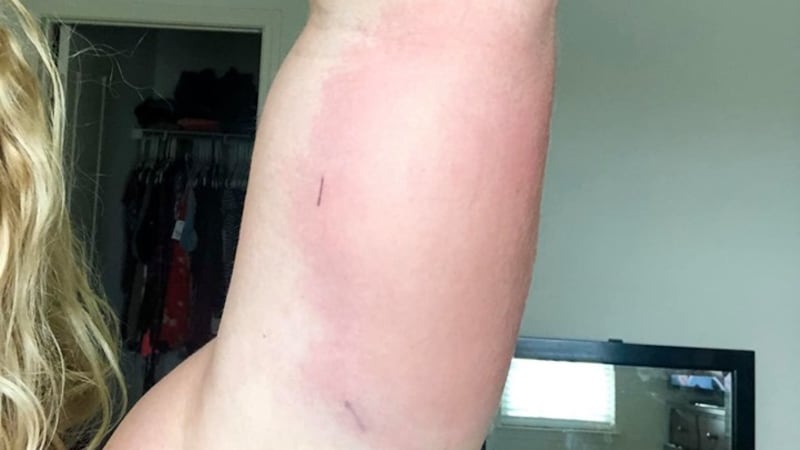Recent reports of flesh-eating bacteria in the area

"It was more of like an achy pain at first," said Santa Rosa Beach resident Tyler King.
On Friday, King found himself with what appeared as a bad rash. King said, "The biggest indication to them that it was a bacterial infection was how fastly it was spreading and the nature in which it was spreading. So it started as a circle basically or like an oval shape and worked its way out of my arm in every direction."
That's when King said he learned he had vibrio vulnificus, an infection brought on by flesh-eating bacteria.
Dr. Jeremy Sunseri of Sun Dermatology in Panama City said, "We talk about mostly vibrio here because it grows in the Gulf waters and we see it even on things like oysters and that type of thing if they're harvested here in the Gulf."
This comes on the heels of a 12-year-old girl from Indiana who contracted a more serious flesh-eating bacteria caused by an infection called necrotizing fasciitis last month. Her mother claims it happened in Destin, but the Florida Department of Health says there has been no confirmed cases in that area.
Dr. Sunseri, who is familiar with the bacteria, but did not treat either person, says King went to the hospital at the right time.
"Within a few hours if it was vibrio it would probably become necrotizing fasciitis and involve those deeper fascial planes and then spread accordingly and cause much more havoc and that's what we worry about and also getting into the blood stream and that is the biggest concern," said Dr. Sunseri.
Dr. Sunseri says that while anyone can contract the bacteria, certain people with pre-existing conditions are more susceptible than others.
"The main issue or concern is for people that have any kind of immune compromise or liver disorders, liver diseases--things like diabetes or hereditary hemochromatosis where they have known liver condition because they can't fight the infection as well," said Dr. Sunseri.
So what should you do if you find yourself with a bad reaction after being in the Gulf?
King said, "Well, you just gotta be smart and listen to your body."
While Dr. Sunseri said, "Common sense goes a long ways. Go get seen and don't wait. Time is of the essence."









